If you’re a matcha addict like me, not a day goes by without drinking a matcha latte. Today I’m sharing my favorite matcha green tea powders I drink regularly. Often touted as the secret to why Japanese women never age, matcha tea offers numerous health and skin benefits that will have you wanting to drink it daily. Low in caffeine and high in antioxidants, Matcha contains up to 137 times more EGCG (catechin) than other green teas and is also rich in L-theanine. While you can find matcha lattes offered at every American coffee shop today, the ancient practice of drinking matcha tea goes back more than a thousand years ago. We’re diving into all things matcha today, including matcha benefits, how to make matcha tea and which matcha brands are best.
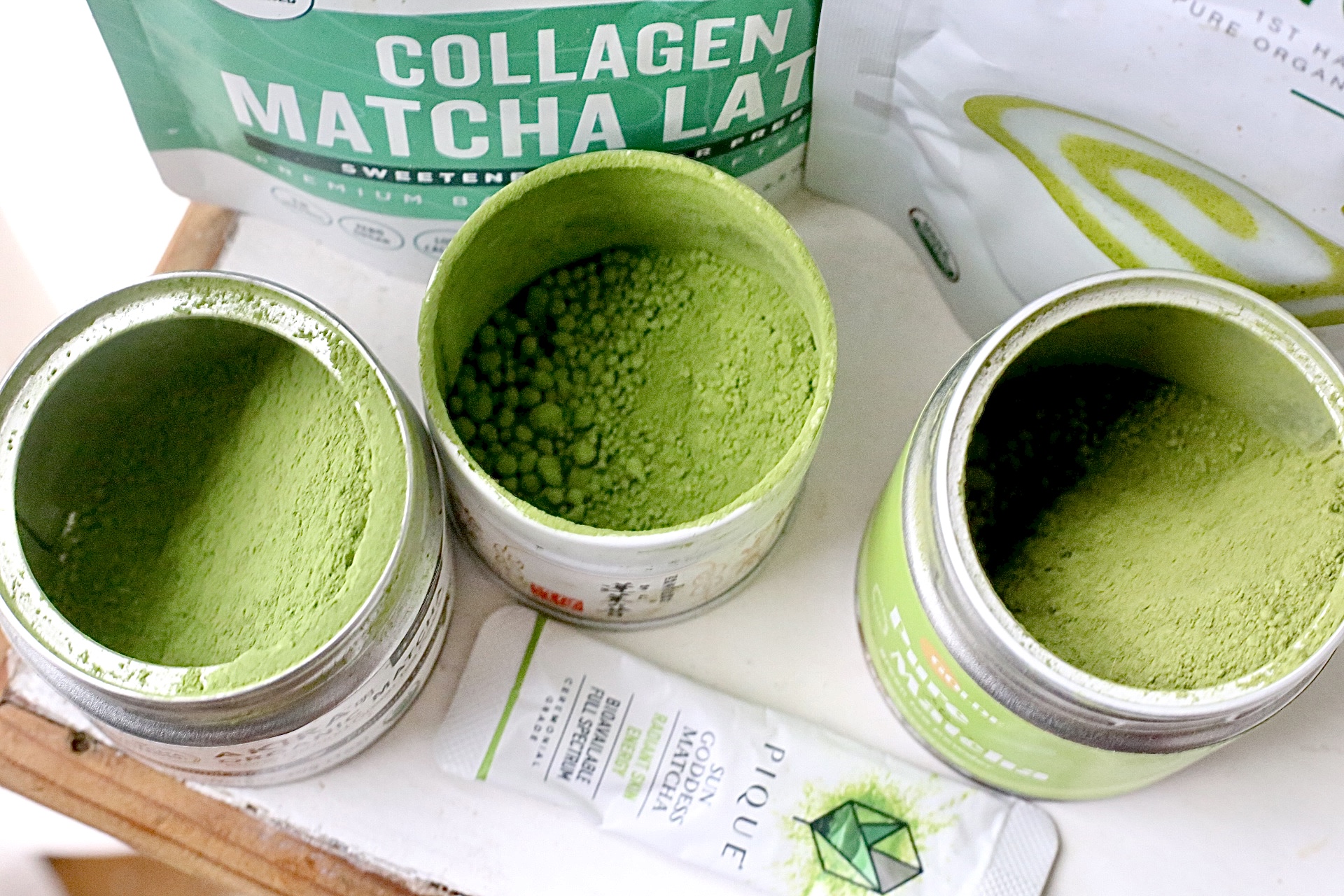
About matcha
Matcha is a type of Japanese green tea that is made by grinding shade-cultivated tea leaves into a fine powder. Unlike regular green tea where you steep leaves in water, matcha is the powder made from ground-up tea leaves. Because you’re consuming the whole leaf when you consume matcha, you’re getting a higher concentration of nutrients (and benefits).
The origins of matcha can be traced all the way back to the Tang Dynasty in China in the 8th century. It was popularized after it was brought to Japan in the 1200s, and today, it is widely known as a Japanese tradition.
10 Matcha Tea Benefits
- Provides protection against infection
- Helps detoxify the body
- Loaded with antioxidants
- Can boost skin health
- Known to possibly be cancer-fighting
- Improves productivity and focus
- Promotes healthier cholesterol levels
- Reduces stress and anxiety
- Can strengthen bones
- Heps control Type 2 Diabetes
Matcha’s health benefits have been extensively studied. Here are just a few findings:
- In a 2017 study published in Food Research International, people who drank matcha specifically experienced a slight increase in attention and processing speed an hour later (likely from L-theanine, a polyphenol called epigallocatechin gallate (EGCG), and caffeine.
- Older studies have linked the powerful antioxidant EGCG to cancer prevention and preventing colon cancer cell growth.
How to test the quality of your matcha
How do you know if your matcha is high quality or not? A simple test you can do to gauge the quality of your matcha is to do a swatch test. Yes, just like makeup! Simply take a bit of the matcha powder and swipe it across your arm or hand. If the color is vibrant, that’s a sign the quality of the matcha is high. If it’s dull, then it’s not very high quality. It’s interesting to test swatches of different matcha brands to compare the qualities.
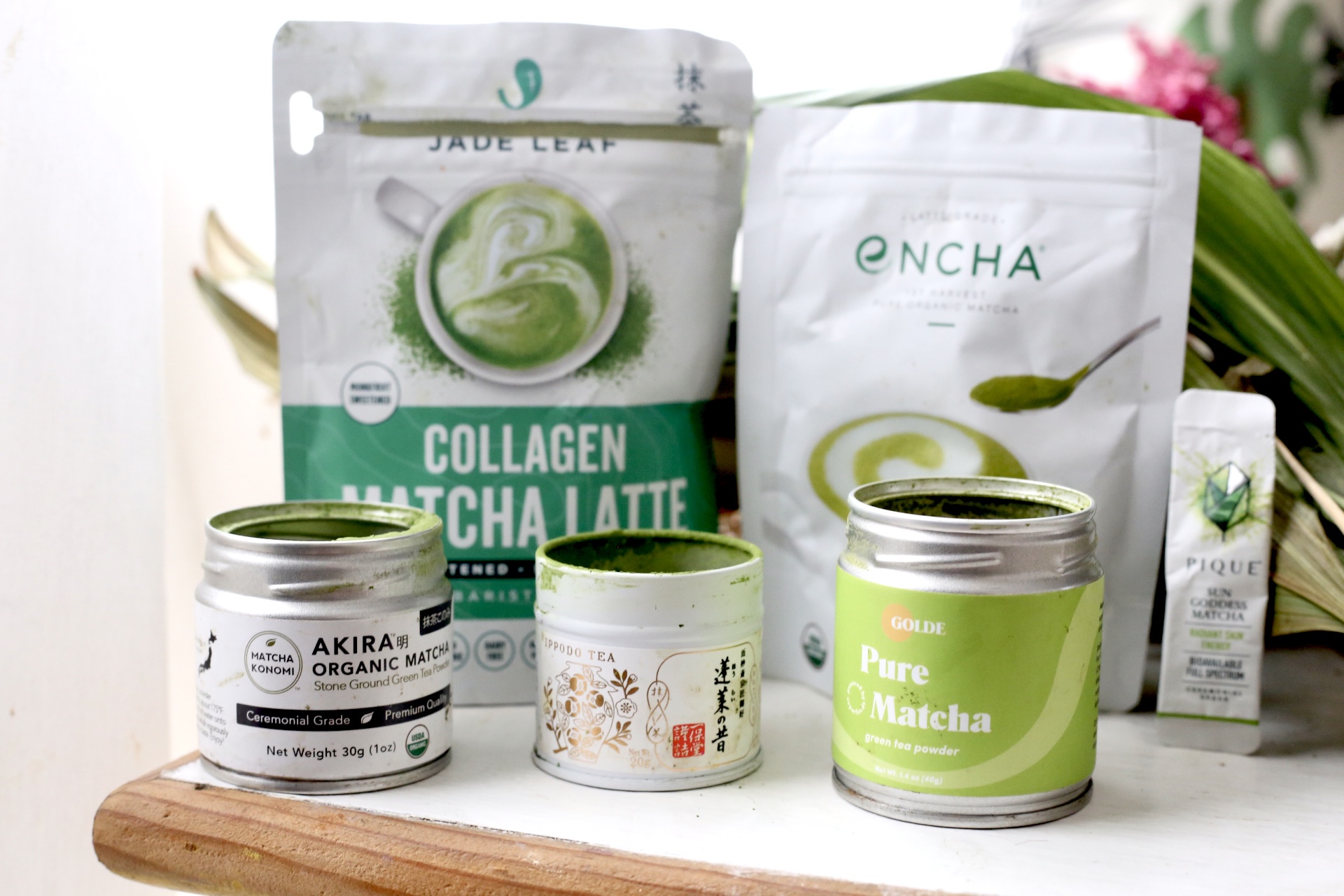
Ippodo Tea: My Absolute Favorite!
For the most authentic and highest quality matcha powder, my favorite organic matcha powder is made by Ippodo Tea. Ippodo Tea is a Kyoto brand that’s been providing the highest quality Japanese green tea for nearly 3 centuries. Ippodo, which means “preserve one” came from Prince Yamashina, who enjoyed Ippodo tea and wanted the shop to preserve one tradition: providing high quality tea. Their matcha also has the most VIBRANT green shade compared to other organic matcha powders.
Ippodo’s tea is mainly grown in the hills between the Uji and Kizu River basins in Kyoto, Nara, and Shiga Prefectures which share a similar climate and natural environment. These areas are widely known to produce the highest grade of green tea in Japan, because of its particular mild misty climate, mineral-rich soil, and nearly perfect balance of sunshine and rainfall. All these different factors go into being able to grow the best tasting and highest quality matcha.
The Ippodo Tea blends so easily in hot water and tastes super smooth and rich. It’s not overly bitter like other poor quality matches and I can actually handle drinking it the traditional way with water only (no milk or sweetener!).
Price: 20 servings for $52
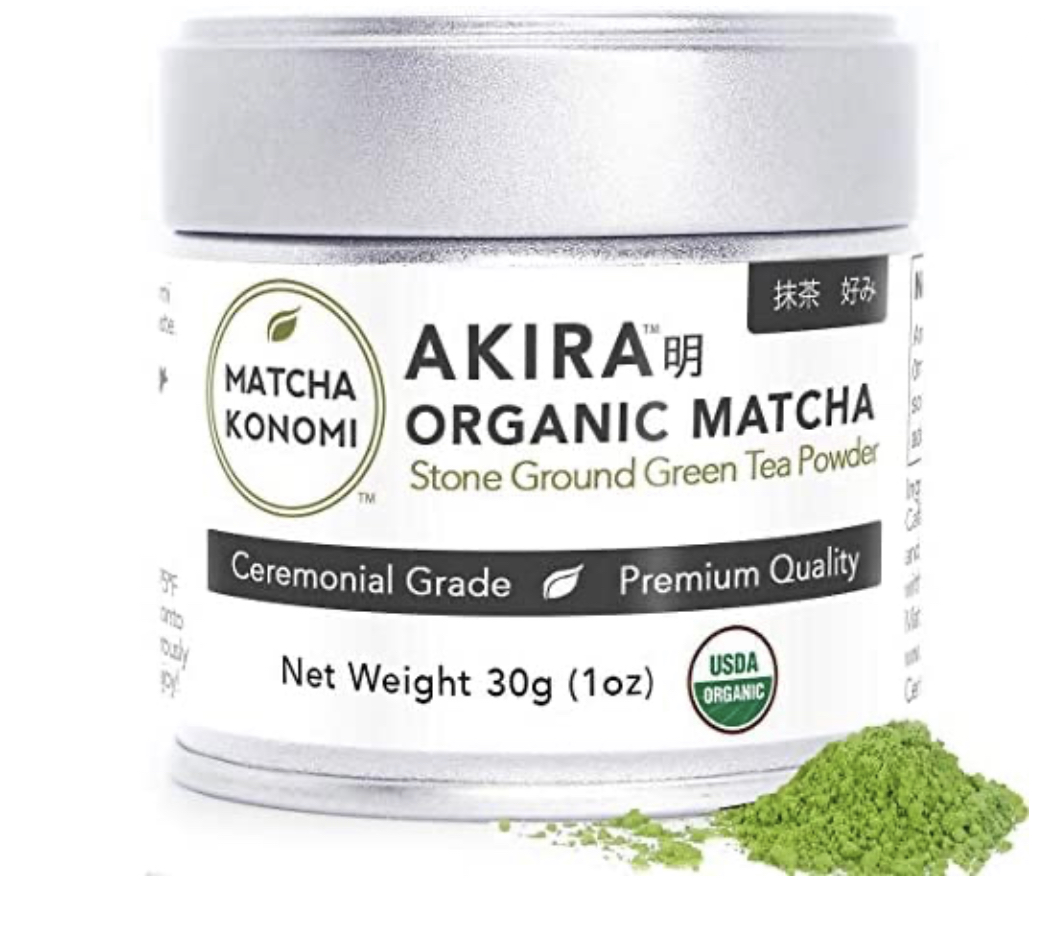
Akira Organic Matcha
Akira Organic Matcha is one of my top picks for an affordable USDA organic matcha. Their matcha comes from Uji, Kyoto where the tea leaves are shade grown for at least three weeks, first harvest and slowly stone ground. The quality is pretty high for a low price point and their matcha tastes delicious! It’s 100% Organic (USDA & JAS Certified), made exclusively from first harvest leaves and only uses the most delicate and youngest tea leaves from the top of the tea plant.
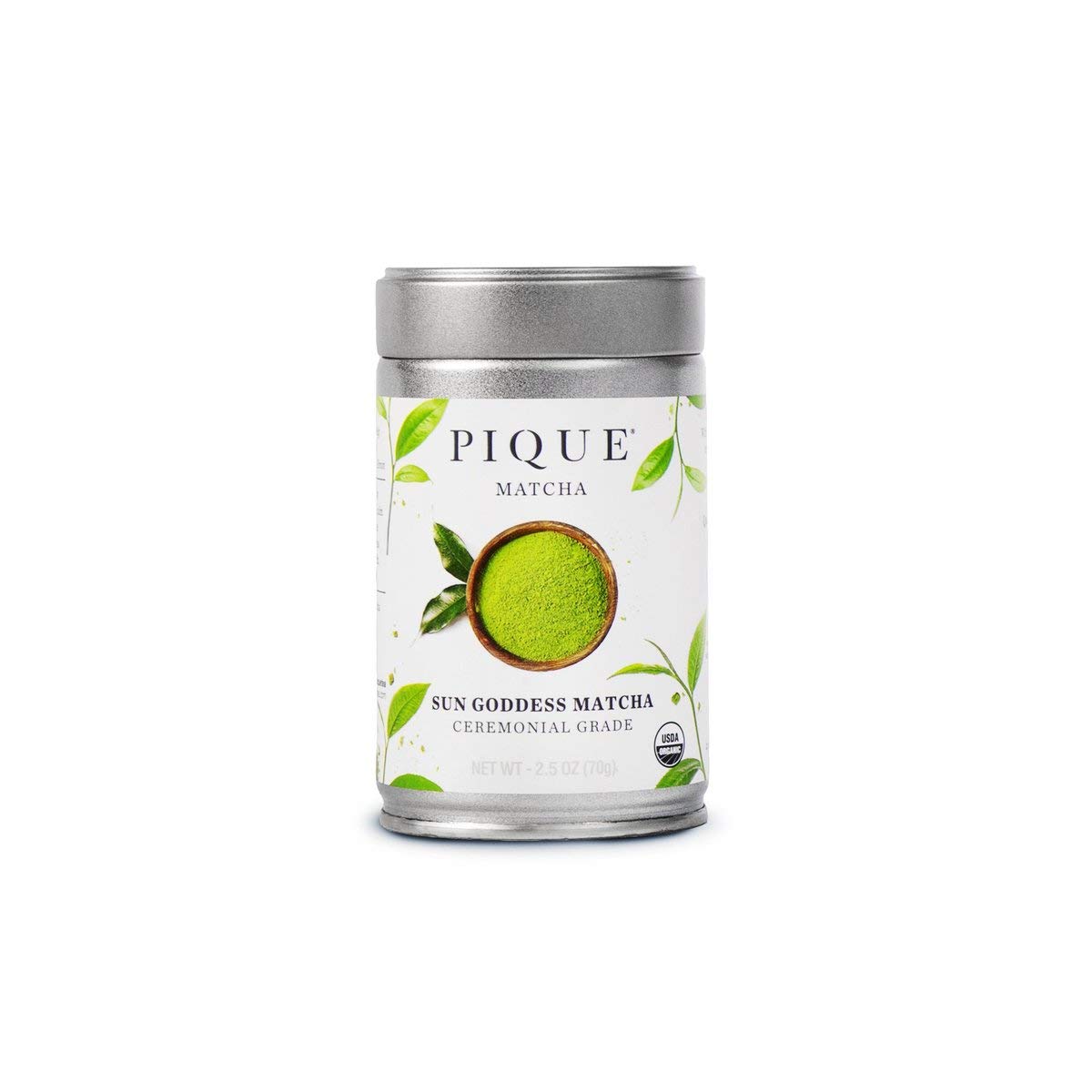
Pique Sun Goddess Matcha
Pique Tea Sun Goddess Matcha is one of the highest quality matchas I’ve experienced and it’s wildly convenient because you can also dissolve it in cold water. Most matcha can only be mixed with hot water.
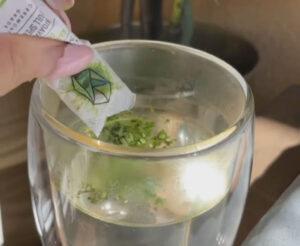 Sun Goddess Matcha dissolves seamlessly in both cold and hot water and the taste is so pure without strong bitterness. They take extra steps in making sure the matcha is as safe and healthy as possible by quadruple toxin screening for for pesticides, heavy metals, toxic mold, and radioactive isotopes.
Sun Goddess Matcha dissolves seamlessly in both cold and hot water and the taste is so pure without strong bitterness. They take extra steps in making sure the matcha is as safe and healthy as possible by quadruple toxin screening for for pesticides, heavy metals, toxic mold, and radioactive isotopes.
- Organic
- Ceremonial-grade
- Made by third generation teamasters, using 130-year-old techniques.
- Sourced from Kagoshima, situated in a lush valley at the southernmost tip of the Japanese archipelago – the furthest distance from environmental toxins
- The matcha trees are cultivated with 35% longer shading periods to maximize phytonutrient potential
Price: 28 packets for $58 (discount code OBL saves 10% at Pique)
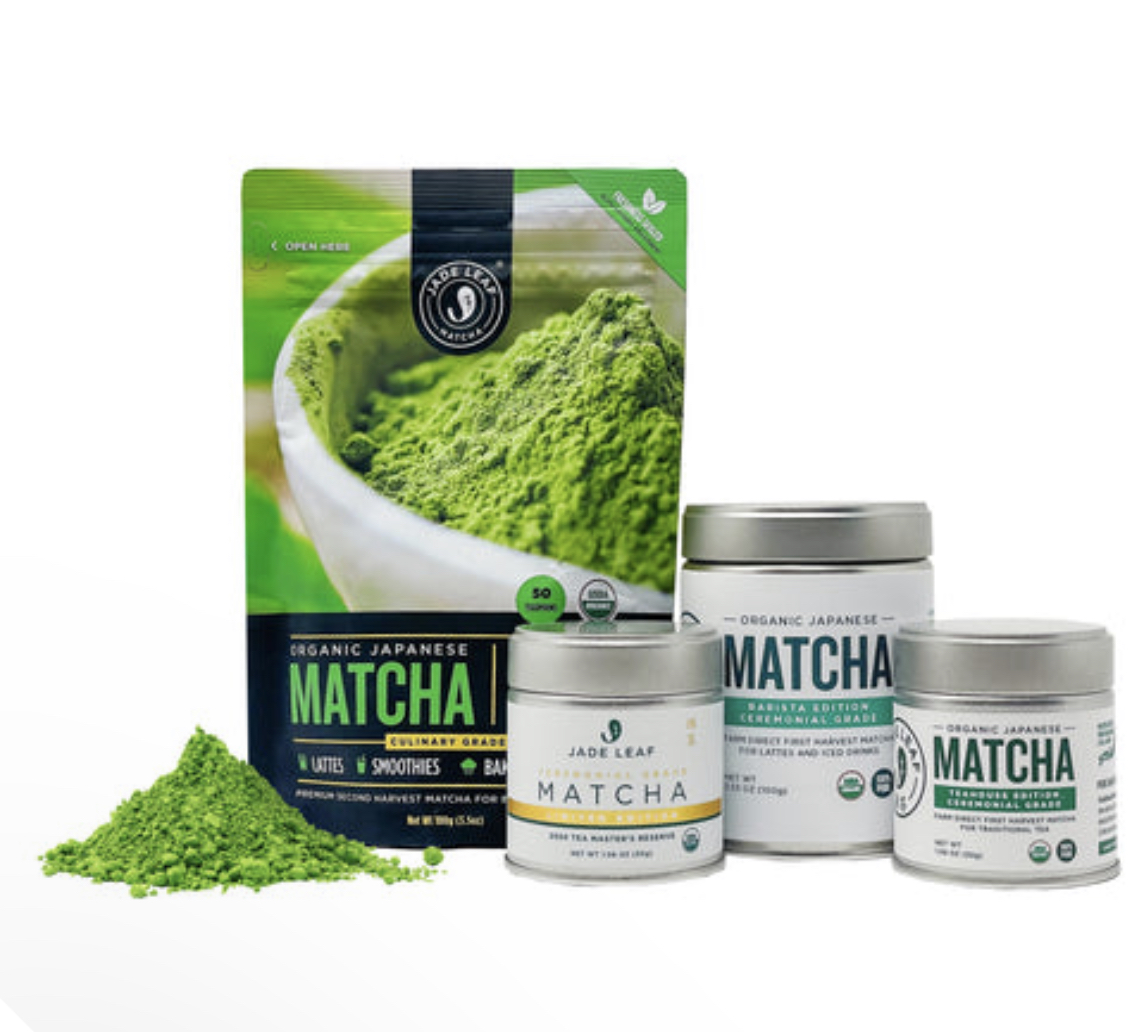
Jade Leaf Matcha
Jade Leaf Matcha offers the most types of matcha for all occasions including culinary grade, ceremonial grade, collagen-mixed and latte mix. I found the pricing to be affordable and quality high as they use 100% USDA certified organic matcha from family-owned partner farms in the Uji and Kagoshima regions.
It’s also interesting that their matcha is produced by the Kizuna Tea Collective, which is a network of family-run tea farms across Japan’s premiere growing regions, who have been cultivating high quality matcha and supplying Japan’s domestic market since 1858.
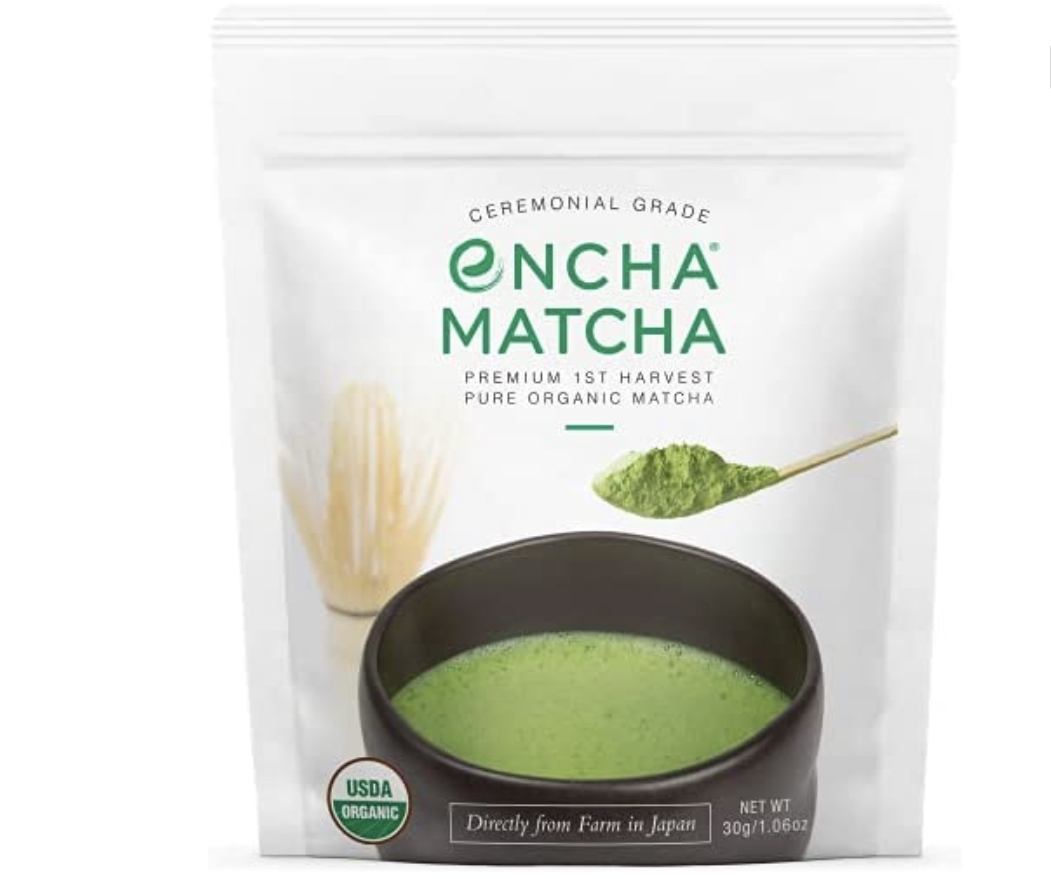
Encha Matcha
I found the quality of Encha’s USDA organic matcha is quite similar to many of the other brands in this list like Jade Leaf Matcha and Golde. All their matcha is USDA Certified Organic and comes from two farms in Uji, Japan.
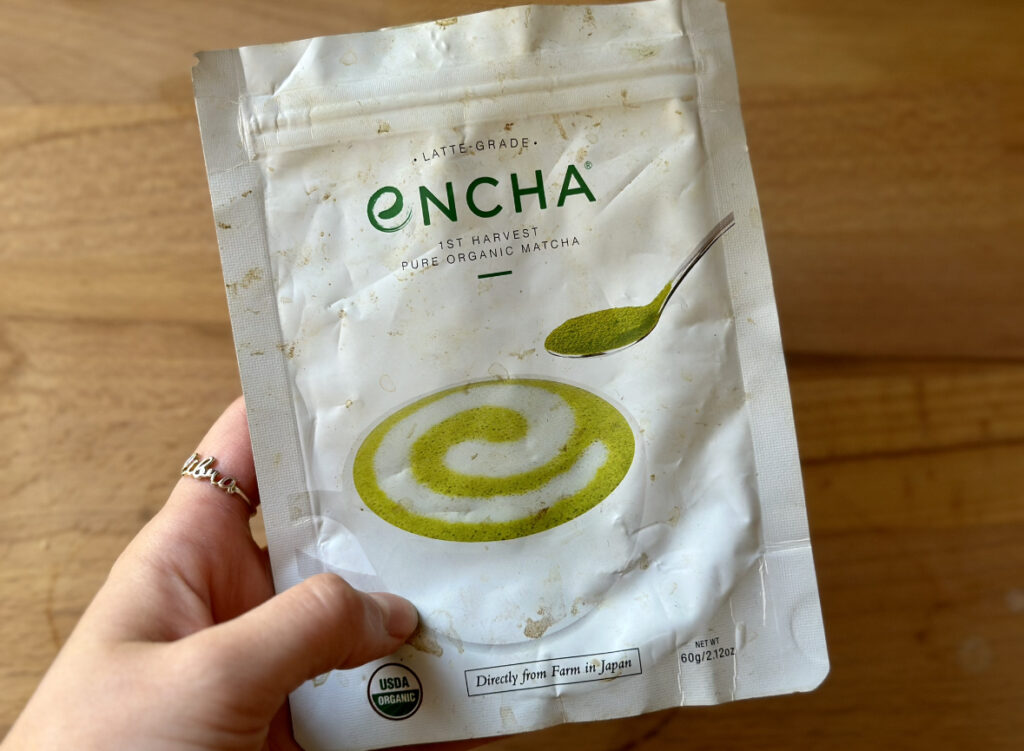 Their powder is shade grown and stone ground for optimum flavor and benefits, then ground from only the most tender matcha leaves each spring. I feel that many of the USDA organic matcha bestsellers sold by small brands must source their matcha from the same farms and suppliers. The ones in a similar affordable price range generally tasted the same in quality to me.
Their powder is shade grown and stone ground for optimum flavor and benefits, then ground from only the most tender matcha leaves each spring. I feel that many of the USDA organic matcha bestsellers sold by small brands must source their matcha from the same farms and suppliers. The ones in a similar affordable price range generally tasted the same in quality to me.
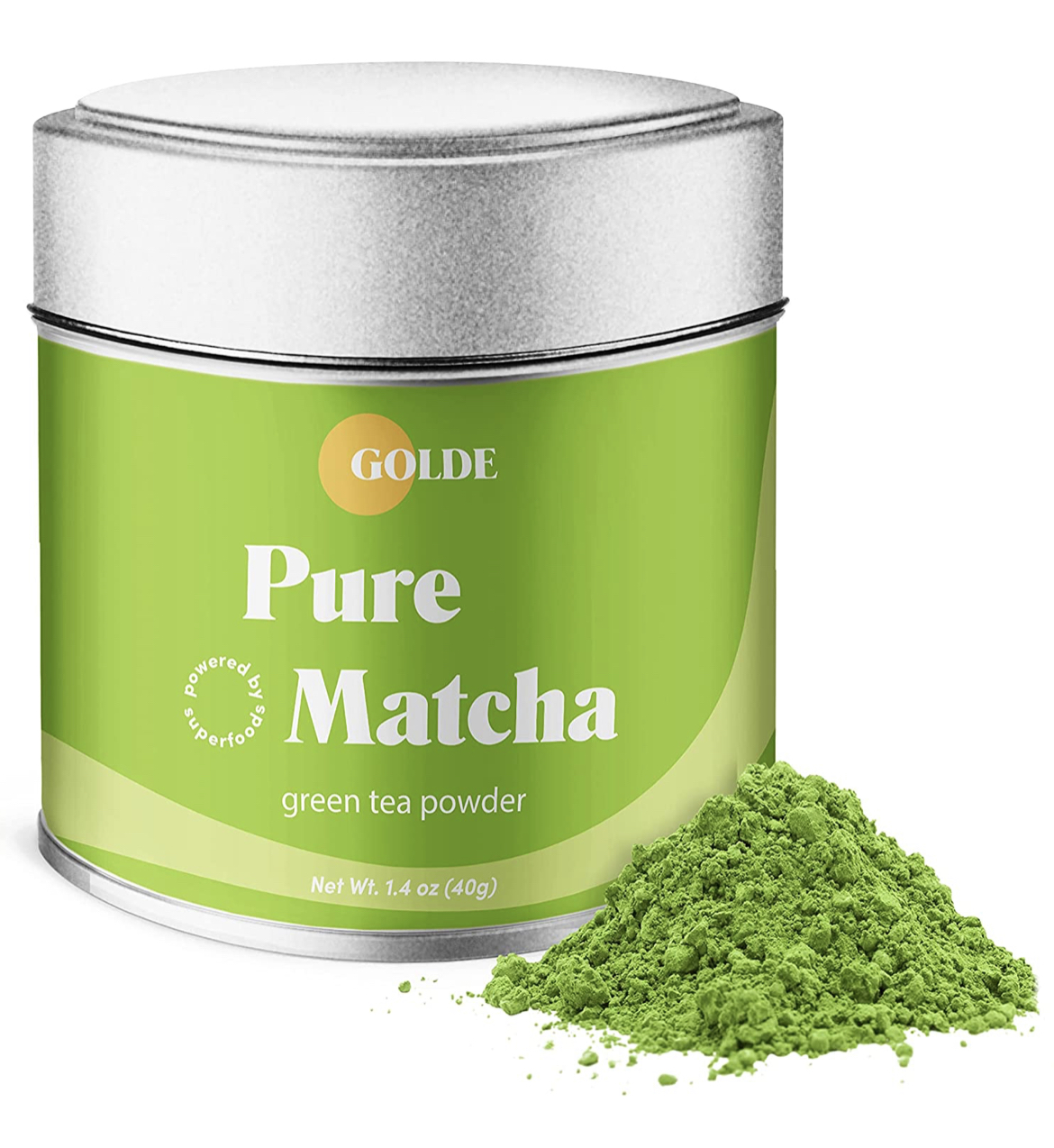
Golde Pure Matcha
Another small brand whose matcha I enjoy is Golde’s Pure Matcha. Theirs is also made with 100% pure, shade-grown green tea leaves from Uji, Japan and it’s certified Organic. It’s pretty decent quality matcha for the affordable price point.
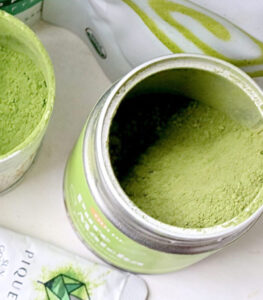
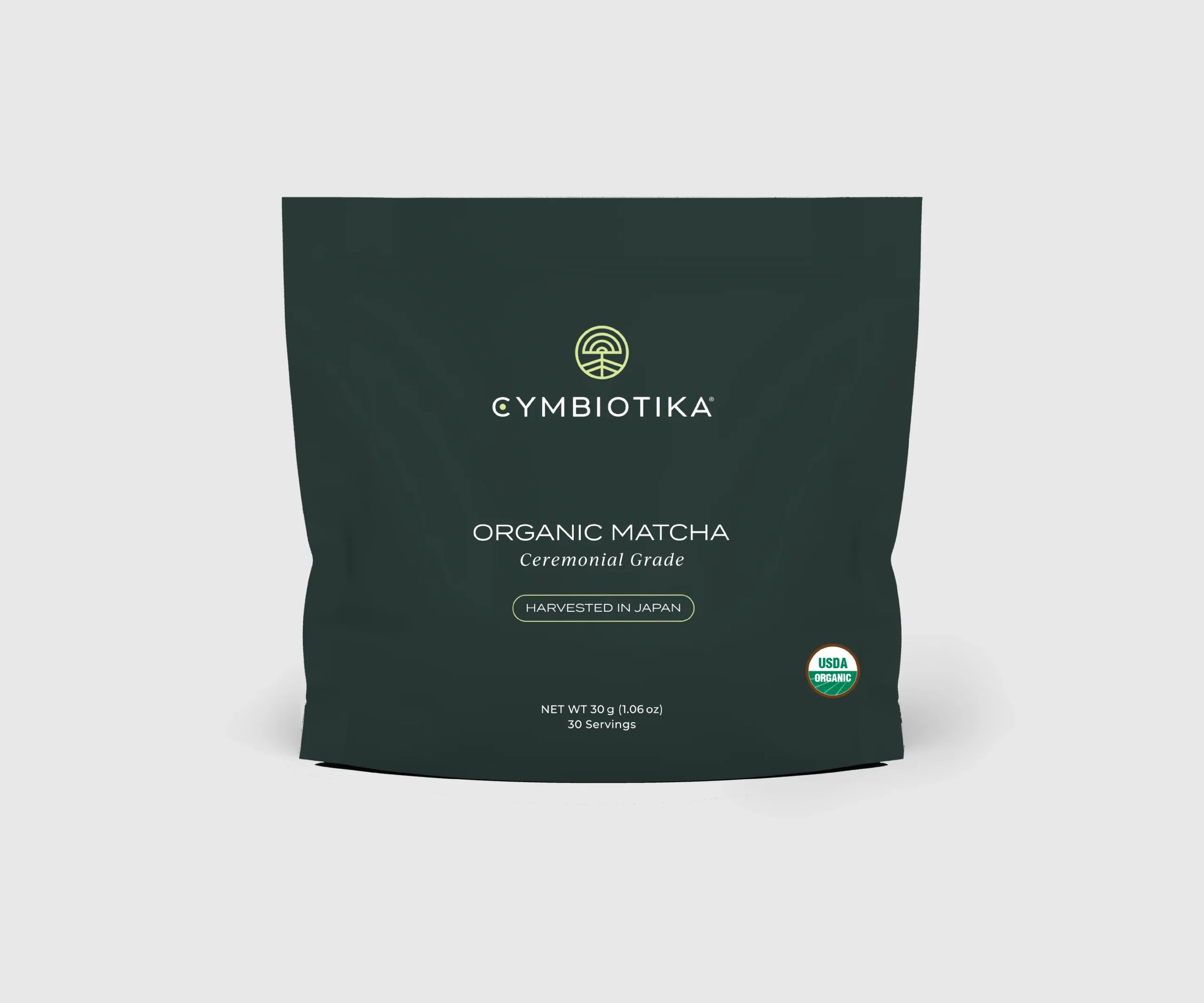
Cymbiotika Organic Matcha
Cymbiotika is a newer organic matcha I’ve been loving lately! They source their organic matcha from small family farms in Uji and Kagoshima, Japan and only use the top of the green tea leaves from the first harvest of each year. I love that this comes in a travel friendly, compact pouch that involves less wasteful packaging and it tastes rich and smooth as well.
Price: $44 for 30 servings
SAVE: Discount code OBL saves 15%
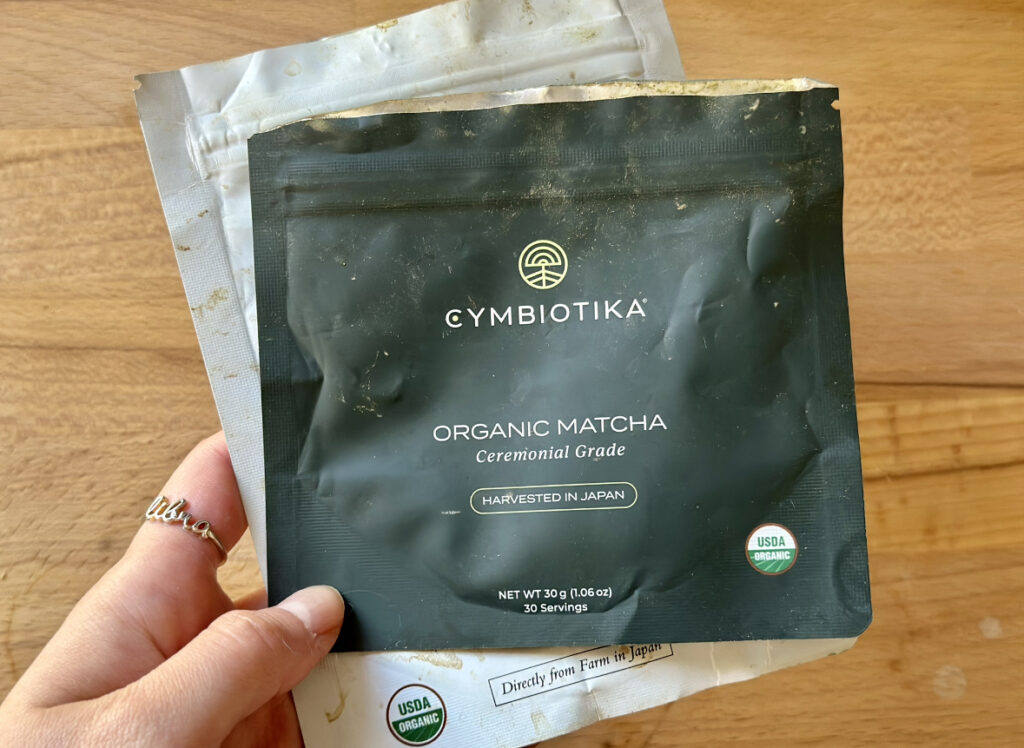
How to Make Matcha Tea
- When preparing your matcha, sift the dry powder right before adding water. Sifted matcha is easier to whisk fully in a short time.
- Whisk for seconds, not minutes. Whisking for very long can produce a bitter taste.
- While not necessary, the classic bamboo whisk (chasen) made for whisking matcha has many fine tips that allows you to whisk up fragrant and well-mixed matcha drinks.
- Enjoy it before the leaves separate from the water.
Advanced Matcha Tips
- Find your favorite taste: Experiment when making matcha by trying different ratios of water to matcha and water temperatures.
- Temperature affects flavor: Scalding hot water produces fragrance and sharpness. Cold water produces a misty, rich character with low foam. Comfortably hot water makes a balanced character.
- Make it a latte: Add your favorite milk to matcha whisked with water. Adjust the ratios and experiment to find your favorite taste.
How Long Does Matcha Last
If unopened, Matcha should be consumed within 12 to 14 months. Once opened, matcha should be consumed within one to two months.
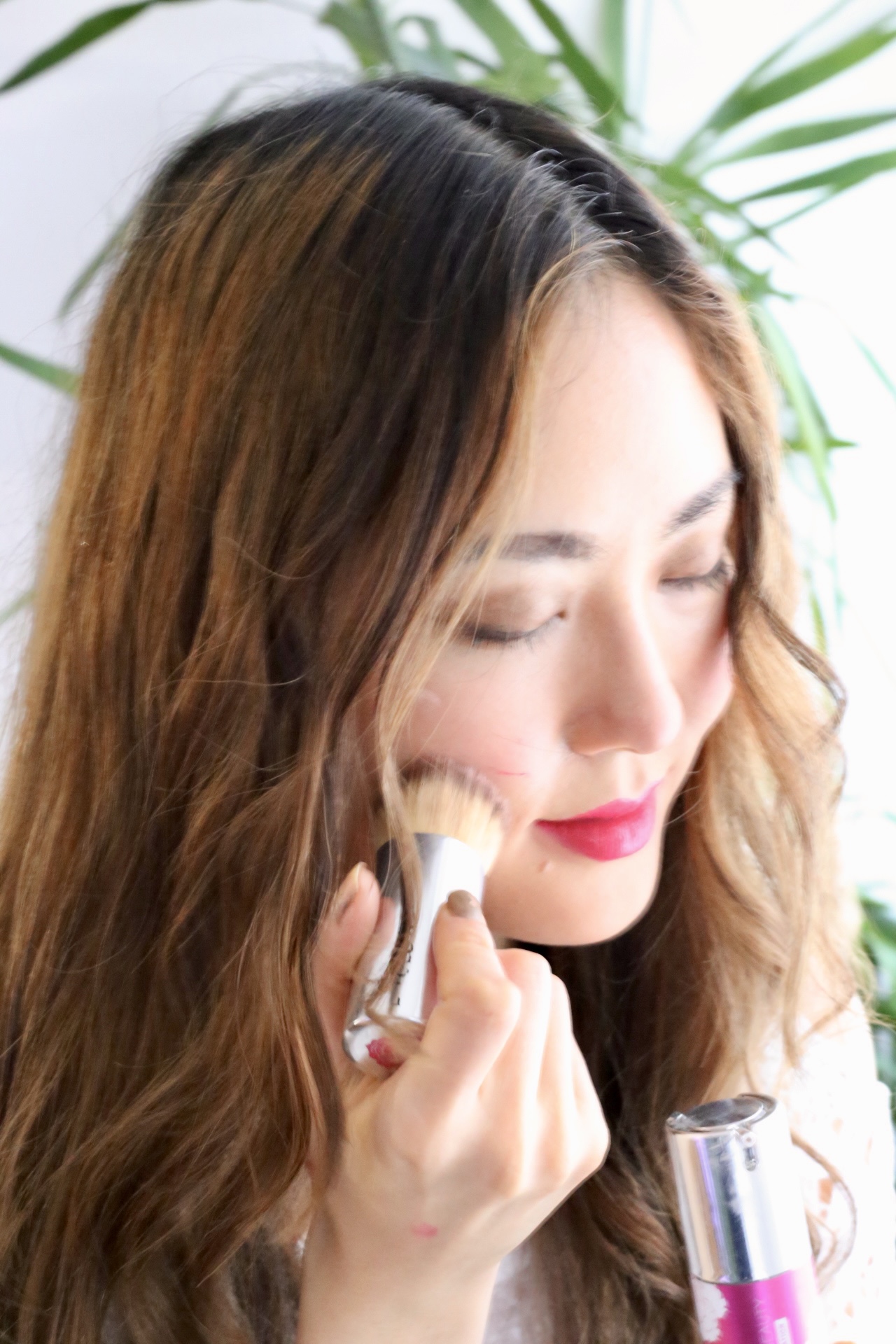
Andrea is a clean beauty expert from Los Angeles, California with 10 years of experience in natural skincare and organic living. She writes for Organic Beauty Lover using her expertise to guide readers in choosing the best clean products. Andrea graduated from the University of Southern California in 2012 and has worked at multiple skincare companies, big and small. Connect with her @organicbeautylover.
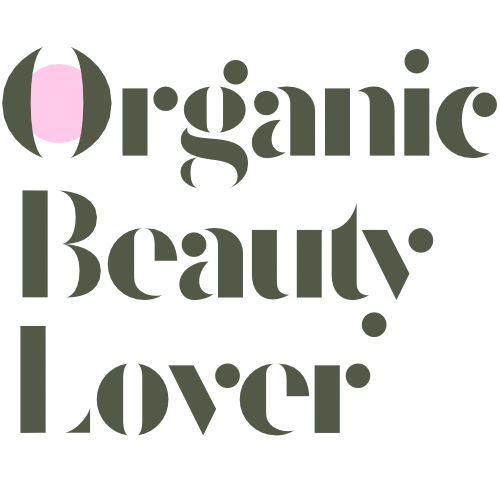
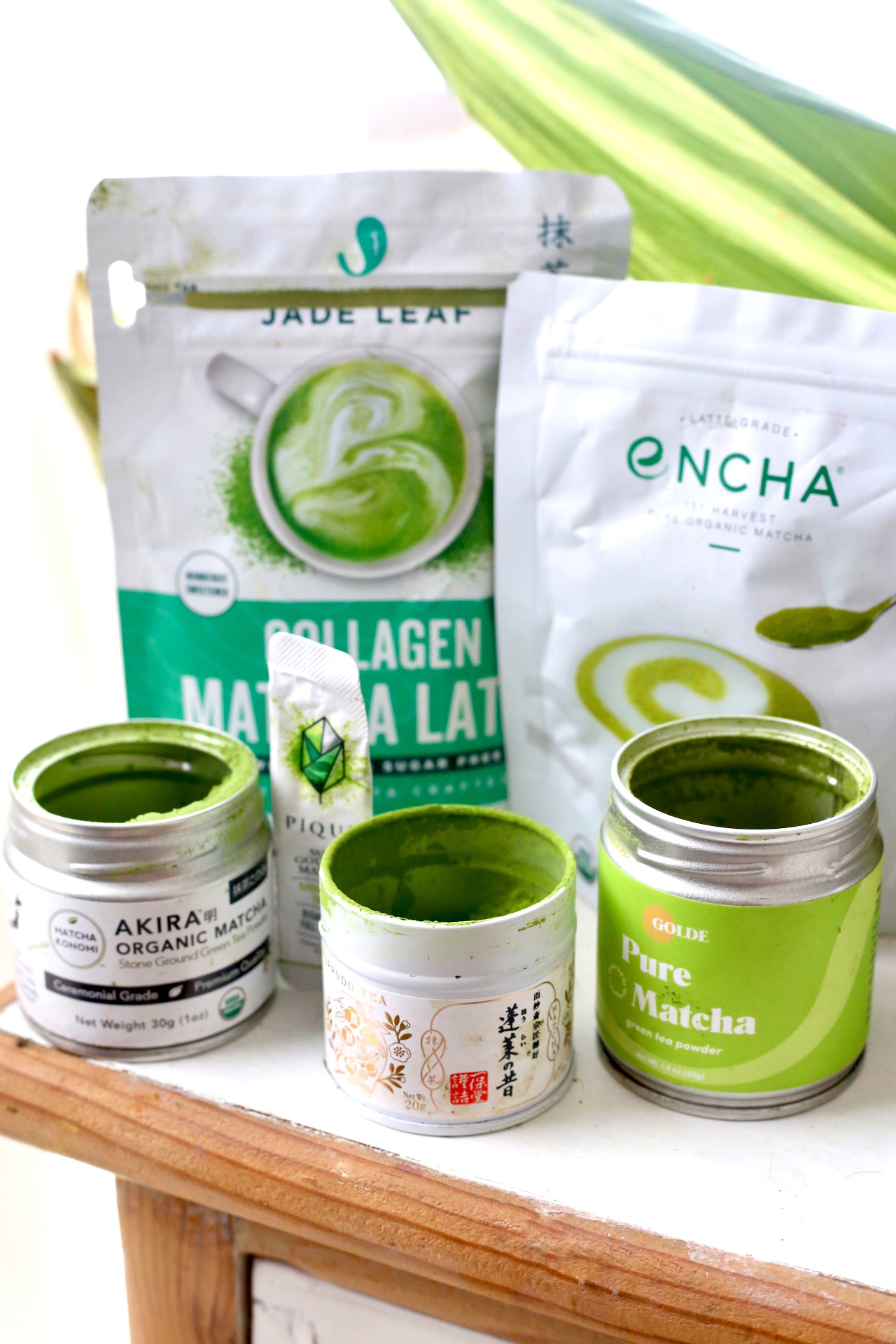
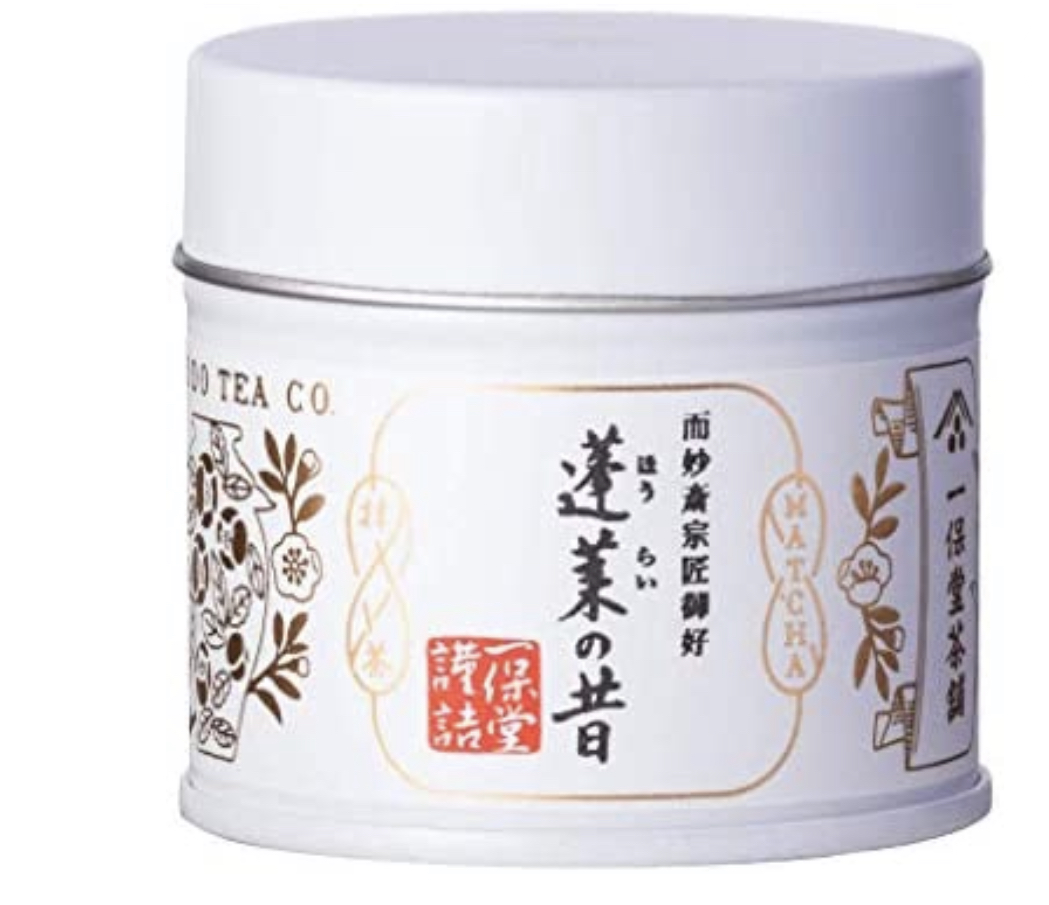
Leave a Reply